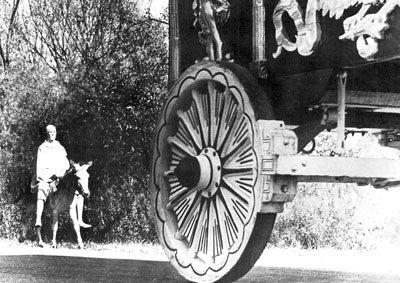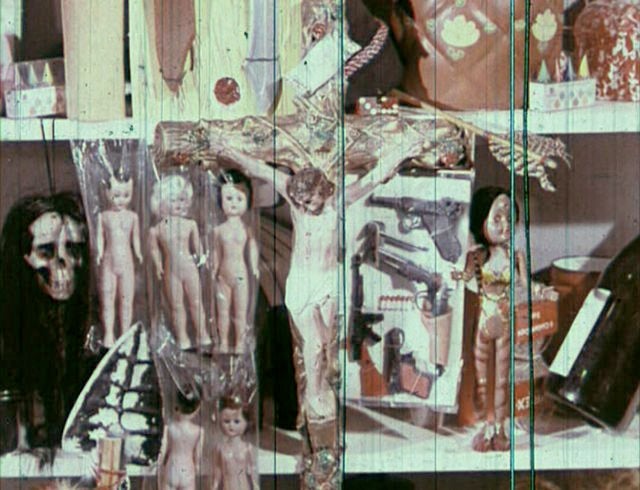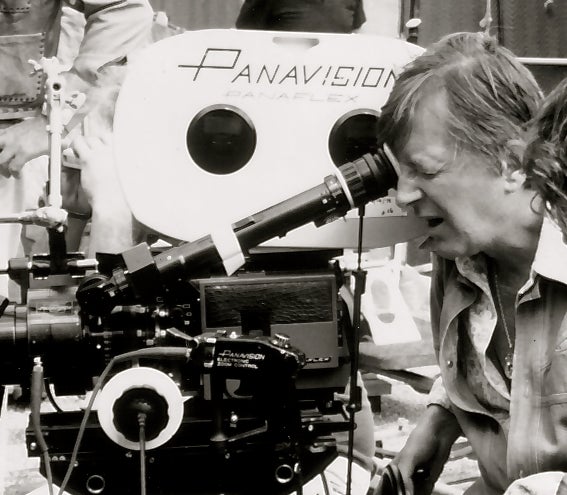
The concept of a benevolent, all-powerful being that knows all, sees all, and controls all has long provided comfort to a significant cross-section of the masses struggling to make sense of a world that seems out-of-control. To the rest of the human race, the mere notion of such a reality, where unseen hands cruelly pull the strings that determine our collective destiny, embodies the stuff of bad dreams. Over a distinguished, pioneering career producing, writing and directing religious shorts, filmmaker Rolf Forsberg touched both constituencies, tunneling into the psyches of the faithful and non-believers with his outré cinemascapes of heaven, hell, and the fog in-between. At mid-century, when once mighty religious institutions such as the Lutheran church saw their pulpits unsuccessfully competing with mass media for minds and hearts, Forsberg tapped the primal, collective subconscious and conjured light and shadow to project the Gospel with allegory, enigmatic symbolism and poetic lyricism, boldly confronting souls in ways previously unimagined.

With key influences including Bergman and Fellini, Forsberg's off-kilter application of European art house sensibilities to the realm of religious classroom films was as innovative as it was controversial. His landmark short Parable, commissioned by the New York City Protestant Council of Churches for their World's Fair pavilion in 1964, was met with threats of protests and violence before it even premiered as word leaked that the film dared to depict "Christ as a clown." The haunting, expressionistic Parable ultimately became one of the most popular film attractions at the fair and would receive broad critical acclaim, with screenings and honors at Cannes, Venice and Edinburgh festivals. For decades after the ’64 World’s Fair, Parable remained polarizing as it retained its hypnotic allure, earning its way onto a banned filmed list at the Los Angeles County Library in the 1970s while simultaneously enjoying Sunday school screenings on 16mm prints well into the 1980s. In 2012, Forsberg’s lasting Parable was named to the National Film Registry by the Library of Congress.

The unexpected world-wide attention generated by Parable in ’64 set the stage for Forsberg's subsequent commissions from major religious organizations to create wildly independent-minded cinematic explorations of the spiritual--his unique, mind-bending visions an oasis of originality and creativity in the grasping religious education film market. Across decades, from the horror-tinged chase through a flaming purgatory that is the Twilight Zone-esque short Stalked (1968), to the hellish, post-apocalyptic landscape that humankind deeded to itself in the prescient "ecological shocker" Ark (1970), Forsberg consistently remained a committed, uncompromising experimental artist in the most unlikely of milieus, striving to illuminate the humanist core of spiritual concepts to those both in and outside of the revival tent.
Several years ago, UCLA Film & Television Archive was pleased to acquire a number of film prints from Mr. Forsberg’s personal collection for conservation and access purposes, many of which have since been enjoyed by new audiences in public exhibitions including the Archive’s retrospective “The Outré World of Rolf Forsberg” at the Billy Wilder Theater, as part of NYU’s Orphan Film Symposium at the Museum of the Moving Image in Astoria, Queens, at BAMcinématek in Brooklyn, NY, and most recently at Cinefamily in Los Angeles (“Xtian Xperiments: The Films of Rolf Forsberg”). On this occasion of the 50th anniversary of the evergreen Parable, and the filmmaker’s own 90th birthday, the Archive warmly congratulates Mr. Forsberg for the enduring relevance and legacy of his provocative, indelible canon, and wishes many happy returns, and many more screenings.
—Mark Quigley, UCLA Film & Television Archive.
Watch Mark Quigley's Feb. 4, 2012 interview with Rolf Forsberg:






 Mobile Navigation
Mobile Navigation

